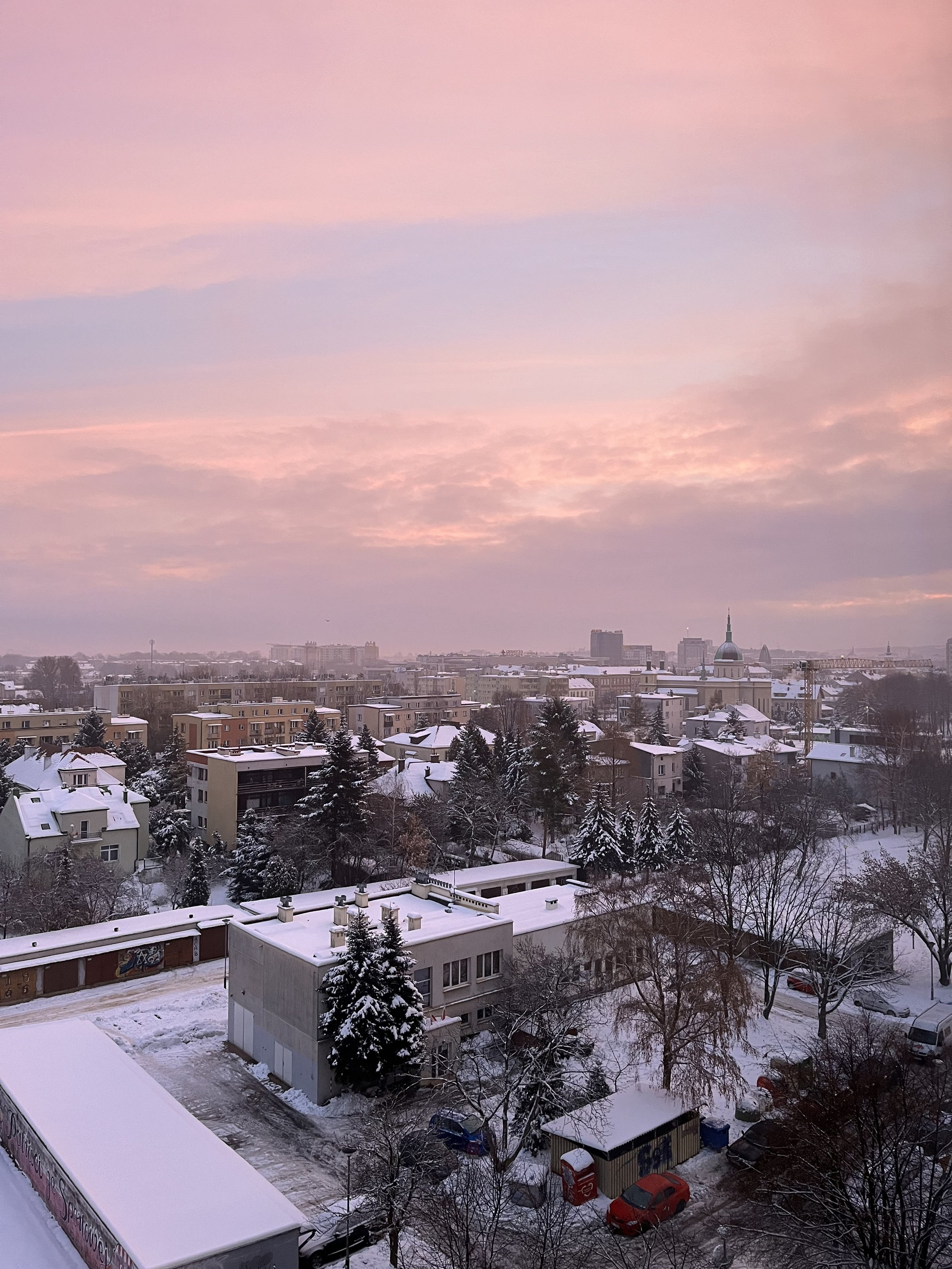One of the shared core values among Pioneers in Europe is partnership with the local church. As we seek to live and serve in areas with minimal local church presence, this value varies in appearance. In this new series of articles, Pioneers throughout Europe will sit down with a local church member to discuss the church’s appearance and vitality in their home nation.
Join us as we take a Spiritual Climate Survey across Europe!
In this first entry, a Pioneer in Poland sits down with the head elder at a local church. Elder A and the other elders serve as unpaid lay elders, shepherding their local church. Elder A initially served in a support role leading music and preaching until he was appointed as Head Elder two years ago.
In this series, we have sought the opinions of local brothers and sisters to help us gain understanding of the spiritual context that surrounds us here in Europe. The views expressed belong to those being interviewed and as such do not necessarily represent any official stance of Pioneers in Europe. Please join us in seeking to better understand the experiences of others and respond in prayer to our heavenly Father who sees and understands all things clearly.
This interview was conducted in Polish and has been translated and edited for use on this site.
What are the demographics of the population you live and serve among?
In this region, Poles and Ukrainians make up the majority of the population. Up until World War II, Poland had a significant Jewish population. Six million Poles were murdered during World War II; half of them were of Jewish origin. Today, Poland is more or less ethnically homogenous, it is also homogenous when it comes to religion [with a Roman Catholic majority]. The current make-up of our local church body is about one-third Ukrainian, one-third American and Australian, and one-third Polish. As far as age distribution in our church, it is more or less a reflection of the general population—although, we have no youth in our church body at the moment.
How would you describe the health and spiritual practices of the local church in your area?
There are a few small [Protestant] churches in this city. There are always those individuals who hop from one church to another, then there are those who go out and proclaim the gospel for a few months and then disappear—this is the worst. There was one local church founded by a foreign missionary who, perhaps prematurely, left to plant a church elsewhere. Nothing remains of the church he planted here. Is our own church body healthy? I’d rather not judge, but there are some things that pain me. There is a serious lack of regularity in church attendance…When you don’t see someone at church for two months at a time, there’s no explanation for it. Of course, there are some people in our church who are incredibly reliable. One of our strengths is that a small portion of the church body is very active and engaged in the church. There are others who, despite proclaiming “Hallelujah, I give my life to Jesus,” cannot find an hour or two to serve Him. There is a lack of understanding that the Lord has called us to labor in His vineyard. He has given us work to do—not only when we feel like it.
What geopolitical events have been affecting the people in your area and the rhythms of your local church recently?
I would say none. I think that those who came to church rarely before the pandemic continue to come rarely. Those who came frequently before the pandemic come frequently now. The war in Ukraine has changed nothing for us, really. Maybe we have some new Ukrainians in our church body, but prior to the war we also had many Ukrainian students in attendance. So in my opinion, there’s not a noticeable difference.
What portions of the population in your area have been the most and least open to God in recent years?
In my personal experience, I’ve noticed that middle-aged people, maybe around 40-50 years old, are open to conversation. There are people who desire to be closer to God—but they don’t know that it’s possible to do so outside of the Roman Catholic church. Currently, the youth are in rebellion—they are embittered against Roman Catholicism. Since they have no awareness of other faiths, they reject the Roman Catholic church and therefore reject God.
What else are people trusting in in your area? What do people fear?
This is a region that has observed sex scandals in the Roman Catholic church and yet remained stubbornly faithful to its practices. Church attendance in this region is the highest in the country. When it comes to people in our region, they generally fear change—particularly the kinds of changes we see in some parts of the European Union. Same-sex marriage, sexual transitions, etc. To people in our very conservative, very Catholic region, these things are unacceptable, at least at this time. People also fear war—they are afraid of what the conflict in Ukraine could bring about.
Apart from spiritual needs, what are the greatest needs in your area?
The social needs in our area are difficult to define, but I can point out the needs of the local churches in our area. Small congregations like ours rarely have their own locale for church services and must rent, sometimes even by the hour. Because of this, our church body lacks stability.
What patterns have you seen in ministry in your area?
There is an ongoing pattern of believers dividing up into small groups. There is a lack of like-mindedness—a lack of working together.
Do various evangelicals in your area work together? Is there unity in the church?
Our church body cooperates with the Gideons. We have contact with a couple of other local churches. We are open to working together—in evangelical efforts, for example. However, we always ask “Who are we dealing with?” We do not accept invitations to cooperate with missionaries, pastors, or churches who appear randomly. We want our work to be with people we know and upon whom we can rely.
What encouragement would you appreciate as a local minister?
We are heading in a good direction because in our church we have a small group of people who are engaged and willing to labor in various ways. What worries us most is that not everyone is engaged and most of those who are engaged are older. We need young people to step in—we need to prepare the younger generation to take over. If this doesn’t happen, who will be here in ten or fifteen years?
Where do you see room for the global church to serve in your area?
Sometimes we receive packages of tracts from the United States—tracts we didn’t ask for. They get stuck in the postal system, then we have to pay taxes on the shipment. It seems to me that this is not what “cooperation” is meant to be. Working together should be structured around agreement on common goals. We cooperate internationally to some extent with the Baptist Union in Europe.
What patterns and needs do you see through Elder A’s insight into the local church in Poland? Would you join us in praying for young people to be discipled to faith and maturity in Poland? Join us in praying for Pioneers to be raised up to labor and serve alongside the church in Poland.
Thank you to our guest writer in Poland and thank you to Elder A for your generosity in thought and insight to your local church!




